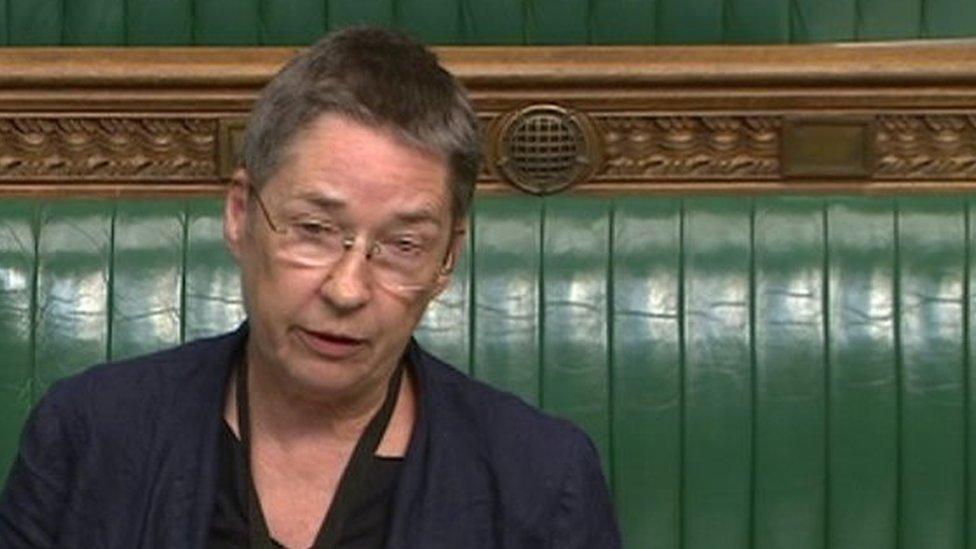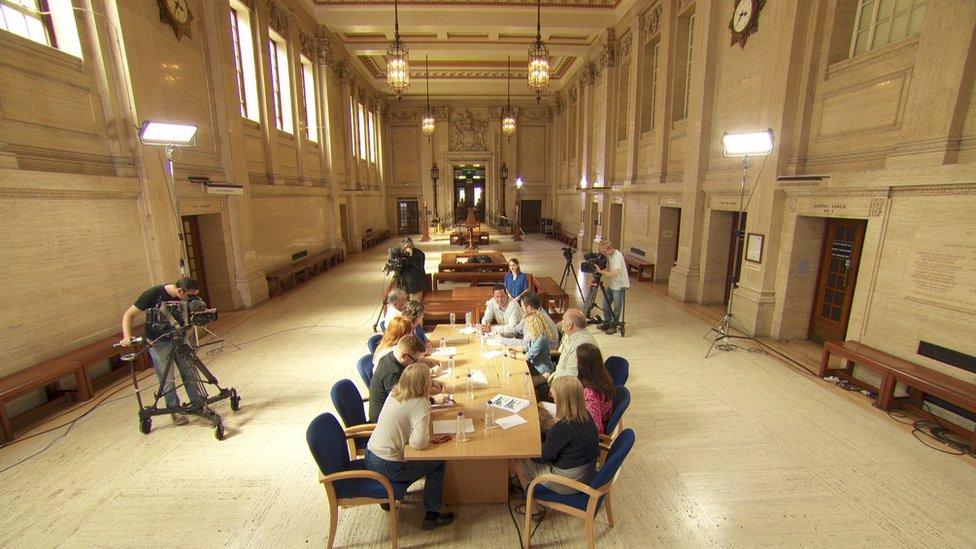Rape trial juries reluctant to convict, says Stockport MP
- Published

Ann Coffey is calling for urgent review of rape trials
Juries in rape trials may have to be scrapped to combat a falling number convictions for the crime, an MP said.
Ann Coffey says many jurors were reluctant to convict as they do not understand the issue of consent.
The Stockport Labour MP told the Commons the "scales of justice have been tipped against victims", after a 12% drop in rape convictions this year.
Justice Minister Lucy Frazer said convictions for all sexual offences had increased during the last decade.
'Rape myths'
Speaking in Parliament, the Labour MP warned "there is a danger we will be thrown back to the dark ages where victims of abuse are silenced and dare not speak out".
Ms Coffey said: "My concern at the moment is the conviction rates indicate that the scales of justice are tipped against the victim.
"We cannot have a situation in which young women have been raped feel that they have no access to justice because this undermines the whole justice system."
It follows research by Huddersfield University, which discovered half of jurors in rape cases come to a not guilty verdict before deliberation of the trial because of the overwhelming dominance of "rape myths" in society.
The rape charity, Rape Crisis UK, said it backed calls for an urgent review.
'Specialist prosecutors'
Spokesperson Katie Russell said: "It's not just the chronically low conviction rates but also research that has suggested that young men are consistently more likely to be acquitted by jurors.
"It is clearly time for some radical action if we are going to see criminal justice outcomes improve for victims and survivors of the most serious crimes."
A spokesperson for the Crown Prosecution Service said: "Sexual offences are intensely personal and distressing crimes and we take their prosecution extremely seriously.
"These cases can often be complex to prosecute as they involve very little corroborative evidence compared to other crimes, often resulting in prosecutors having to consider one person's word against another's.
"In recent years we have increased the number of specialist prosecutors and rolled out additional training."
- Published12 June 2018
